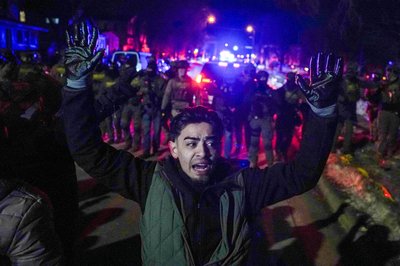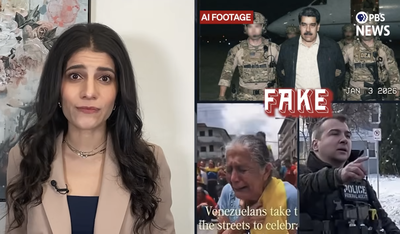SUMMARY
On March 5, the Supreme Court rejected the Trump administration’s attempt to freeze billions of dollars in foreign aid for work that has already been done. The administration asked the court to block a lower-court ruling ordering the government to release the funds. The court case is just one part of the Trump administration's efforts to slash the federal government, including by canceling contracts already in progress.
News alternative: Check out recent segments from the NewsHour, and choose the story you’re most interested in watching. You can make a Google doc copy of discussion questions that work for any of the stories here.
Key terms
district court — the first level of federal courts in the U.S. Most trials begin at district courts and then cases can be appealed up to the Supreme Court
If time is short, watch the video and complete this: See, Think, Wonder activity: What did you notice? What did the story make you think? What would you want to find out more about?
WARM-UP QUESTIONS
- What kind of funds did the Trump administration freeze?
- When did the Trump administration freeze foreign aid payments?
- Who had sued the Trump administration over foreign funds?
- How did the district court judge rule on the case? What did he order the Trump administration to do?
- Why did four Justices dissent (disagree with) the order to resume paying funds for work already completed?
FOCUS QUESTIONS
In this case, the majority of Supreme Court Justices agreed that the Trump administration should resume foreign aid payments for work already completed, but four out of nine justices disagreed. What do you think is the reason for division among the justices? Whose interests and rights were the two groups of Justices considering?
Media literacy: Why do you think this story focused on details such as public polling around expectations that Trump will ignore the courts and less on the substance of the case?
WHAT STUDENTS CAN DO
For many observers, this case has been an important test of the nature of checks and balances in the federal government. Critics say that Trump canceling contracts is a sign that his administration (the executive branch) is taking over the spending power of Congress (the legislative branch).
Supporters of the administration argue that executive powers grant the president the right to review spending to ensure it isn't being spent wastefully or even in violation of the president's political goals.
Do you know much about checks and balances and the separate branches of government? Watch this video on PBS Learning Media and discuss — do you think the Trump administration's actions threaten separation of powers? Why or why not?
Fill out this form to share your thoughts on Classroom’s resources.





